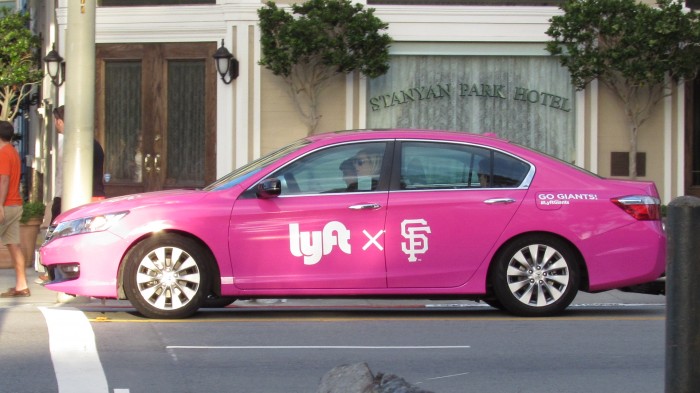Lyft’s Driverless Pipe Dream
John Zimmer, one of the cofounders of Lyft, is bullish about autonomous cars. In a lengthy article posted on Medium, he outlined how he thinks transportation and urban environments will be transformed by vehicle automation and changing patterns of car ownership.
Among other things, Zimmer predicts that within just five years most of the cars in Lyft’s fleet will drive themselves. Many carmakers, tech companies, and Lyft’s arch-rival, Uber, have all jumped on board with automation lately. Reading Zimmer’s post, it sounds like the self-driving revolution is already underway.
Wait a minute, though. I recently took a ride in a self-driving Uber, and while the technology is impressive, it still seems a long way from perfect. For the moment, autonomous cars still require supervision from a human ready to retake control at a moment’s notice. Even if sensors and algorithms improve steadily over the next few years, teaching cars to deal with every conceivable traffic situation, road condition, and type of weather—not to mention the unexpected—will be difficult to get right.

Like Uber, Lyft has a big incentive to invest in automation. The technology could reduce costs by eliminating the biggest expenditure for these companies—payments to drivers—but it also threatens to upend the businesses these firms have built by letting others to jump in to offer cheaper ride-hailing services.
Google, which of course has its own self-driving vehicles, is reportedly testing a ride-sharing service around San Francisco, which must seem like an ominous step for Zimmer and others.
Lyft and Uber do have advantages when it comes to automation, though. The data they have shows where automated cars could most efficiently be deployed. And by limiting the routes self-driving vehicles could take, they won’t need the technology to work perfectly everywhere—at least at first.
Still, moving from offering an app that lets anyone become a taxi driver to building and owning a fleet of self-driving cars would be an enormously expensive shift.
Even if Zimmer is right, the driverless revolution won’t be easy.
(Read more: Wall Street Journal, “My Self-Driving Uber Needed Human Help,” “Prepare to Be Underwhelmed by 2021’s Autonomous Cars”)
Keep Reading
Most Popular
Large language models can do jaw-dropping things. But nobody knows exactly why.
And that's a problem. Figuring it out is one of the biggest scientific puzzles of our time and a crucial step towards controlling more powerful future models.
How scientists traced a mysterious covid case back to six toilets
When wastewater surveillance turns into a hunt for a single infected individual, the ethics get tricky.
The problem with plug-in hybrids? Their drivers.
Plug-in hybrids are often sold as a transition to EVs, but new data from Europe shows we’re still underestimating the emissions they produce.
Stay connected
Get the latest updates from
MIT Technology Review
Discover special offers, top stories, upcoming events, and more.